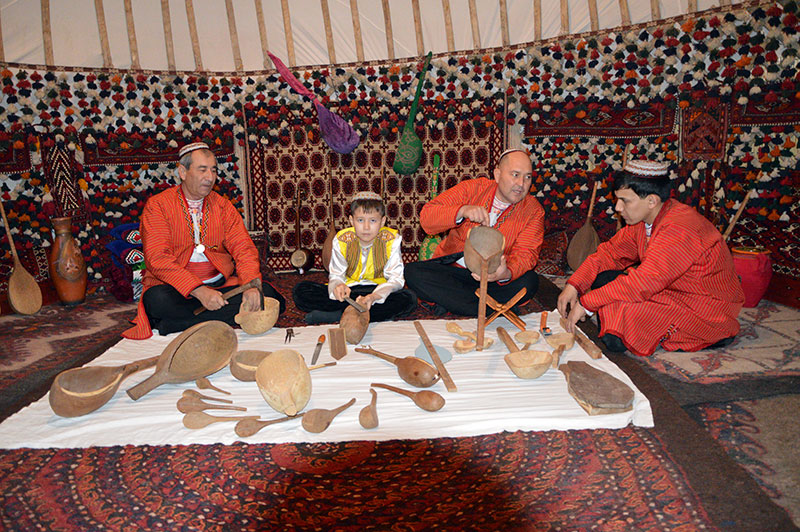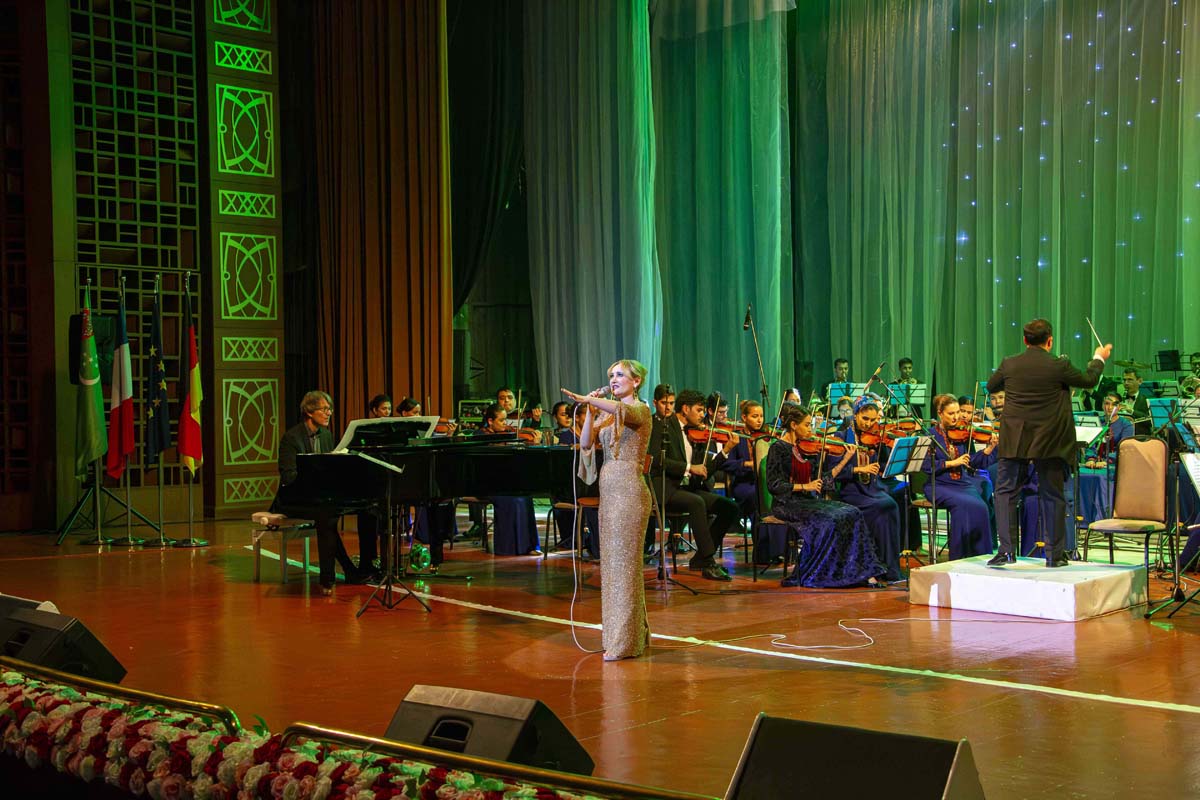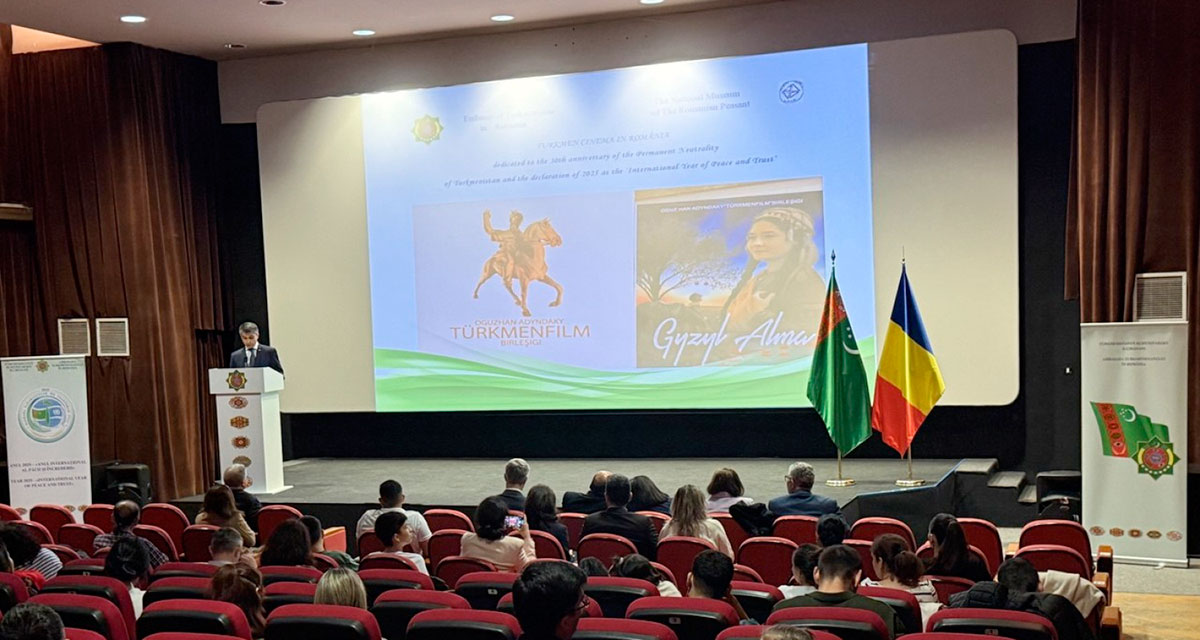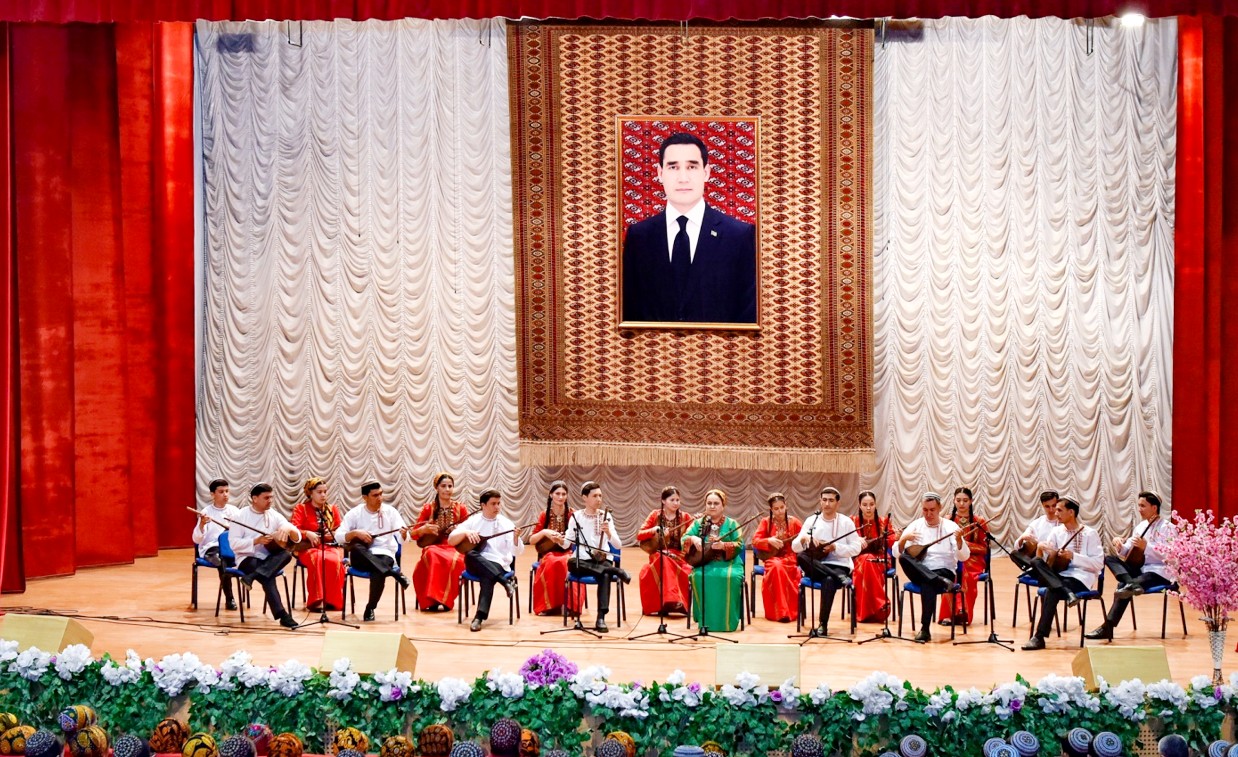Guided by the instructions of the Leader of the Nation on the development of the tradition of mentoring, more and more young talents are mastering this honorable profession of a dutar maker. One of these mentors, who teaches the younger generation the intricacies of this art, is Agamurat Roziev, a teacher of labor at secondary school No. 12 of the Khalach etrap.
At the age of ten, Agamurat enters the etrap children's art school, the dutar department. And during these years, he begins to comprehend the basics of making a musical instrument in his father's workshop. The first failures do not stop Agamurat. Already in the senior classes, he makes, though not perfect, but quite decent sounding dutars. Recognizing talent in his son, the father decides to give his son as an apprentice to a good master. At a meeting of agricultural workers in Ashgabat, Agamurat's father tells about his son to the chairman of one of the daikhan associations of the Geokdepe etrap. He, in turn, says that they have a good master in the daikhan association and, if desired, can introduce them. The master from Geoktepe accepts Roziev's request and comes to visit them in Halach etrap. Here at their home, he evaluates the abilities of Agamurat and decides to teach him the intricacies of making a dutar. There is a mentor-student relationship between them. Despite the long journey, the master regularly visits them in his free time, and the boy spends all his holidays at the master's house. Gradually, Agamurat begins to work independently and make good dutars, which bakhshi singers like.
Now, already an accomplished master, Agamurat remembers his master Agamurat Redzhepov with great respect. Roziev proudly notes that his son Komekmurat, a seventh grade student, is learning the basics of this business.
At present, the dutars of Agamurat Roziev are heard at holidays and celebrations in almost all parts of the country. And the inclusion of the craft of making the dutar, playing it and the art of bakhshi on the UNESKO World Intangible Cultural Heritage List of Humanity caused a great sense of pride among our compatriots.







